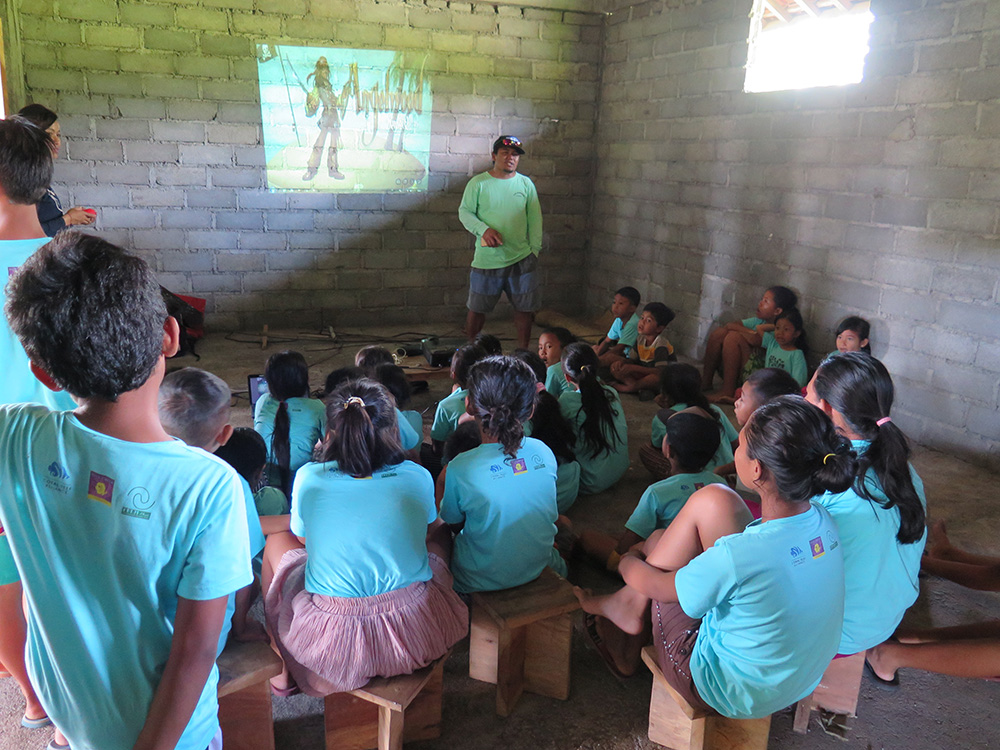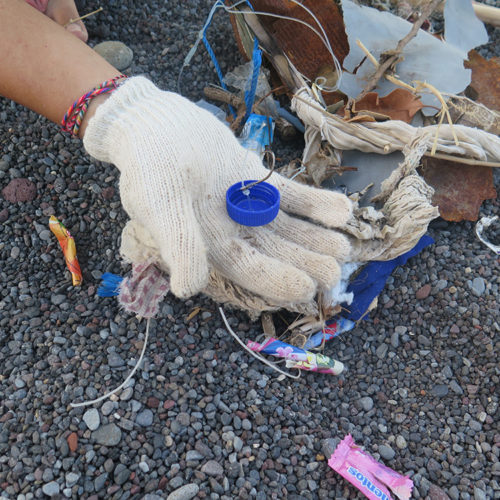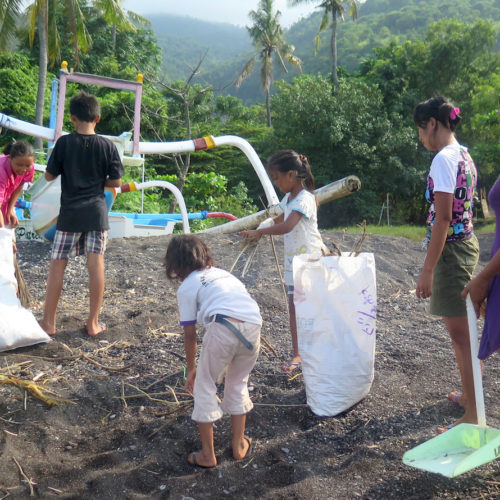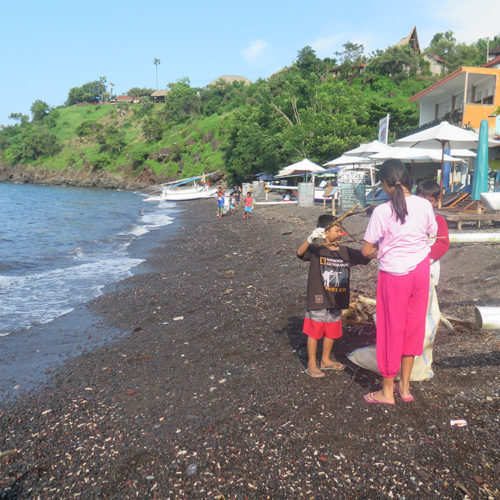In early March, 2018, communities in Amed and Tulamben held coastal cleanups to show their support for the third International Year of the Reef (IYOR). Local communities, Reef Check Foundation Indonesia (RCFI), and the Coral Reef Alliance (CORAL) encouraged youth participation as part of the event. The cleanups helped stakeholders share information about the impacts of marine debris on marine ecosystems, especially coral reefs, which support numerous living organisms. In these communities, coral reefs are the foundation of the local economy.
On Sunday, March 4, 2018, Rare Tulamben, a youth group in Tulamben village, conducted a coastal cleanup in their neighborhood and along a stretch of beach. In the past, Rare Tulamben held coastal cleanups every Sunday morning, but the volcanic activity of Mount Agung, which led to community evacuations late last year, reduced the frequency and consistency of these cleanups. The community plans to continue these weekly activities as soon as Mount Agung’s volcanic activity decreases. Rare Tulamben is supported by TPST-Tulamben, a local trash management agency.

I Nyoman Suastika, one of the local leaders working with Rare Tulamben, said that the involvement of youth in this kind of activity helps build their awareness of the environment at an early age. Suastika added, “Children usually do cleanups around this area. By doing this, we hope these activities will not only be useful for the children, but also the surrounding community in the future.”
Participants of the Tulamben cleanup collected 110 kg (242 lbs.) of garbage, which was dominated by plastic. In addition, participants found Styrofoam, cigarette butts and fishing gear. I Gusti Ayu Lakshmi from the RCFI explained that the cleanup was part of the preliminary data collection that can inform future trash management awareness campaigns. Lakshmi shared that she hopes more parties will participate in the future to help encourage waste management at the local level.
The Amed coastal cleanup took place on March 3, 2018 and concentrated on Jemeluk Beach. Participants included youth, representatives of the fishermen community Tunas Mekar, photography community Klik Amed, the waste management non-profit Yayasan Peduli Alam, dive operators and members from adjacent communities. Participants walked approximately six hundred meters on Jemeluk Beach and collected a total of 120 kg (264 lbs.) of garbage.
Most of the waste collected during the Amed coastal cleanup was plastic. Common forms included shopping bags, food wrappers, bottles and straws. Styrofoam comprised the second most common type of trash, followed by fishing gear, which included pieces of nets, fishing line and rope.
I Nengah Polos, a representative of the Klik Amed community, said that “garbage on the beach is usually more common in the rainy season because additional trash is brought by both ocean currents and water flowing from the higher ground. Therefore, this kind of activity should be routinely implemented in addition to reducing sources of waste.”



